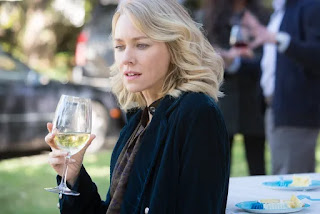Me during the time period Maurice Starr approached me at Tower Records.
Last month, I streamed "The New Edition Story" on Paramount Plus, and it sparked a memory of the time I met Maurice Starr while working at Tower Records Boston in 1990. Starr discovered the 1980's boy band New Edition before he created the astronomically successful New Kids on the Block. When I was in my early teens, I solidly listened to New Edition's first two albums and sang the songs around my house. One of my favorites had the lines: "Shake it/Don't break it/It took your mother nine months to make it," and it drove my dad crazy! Seven years later, I was standing at the entrance of Tower, flipping through a Miles Davis biography, when Maurice Starr approached me. If he had been Ronnie, Bobby, Ricky, Ralph, or Mike, I would have recognized him. But instead, he was their behind-the-scenes producer, and I didn't recognize him at all. He asked me if I liked Miles Davis, and I said that I didn't know anything about him and that's why I was interested in reading this book. He also asked me how the Peter Wolf solo album was doing, and I told him whatever I could remember off the top of my head about its sales. Suddenly a man walked up to me and asked, "Do you know you're talking to a really important guy right now?" I turned to Maurice and asked, "Who ARE you?!" He answered, "I'm Maurice Starr," to which I exclaimed: "No, you're not!" So he pulled out his driver's license and showed me. It had a different name on it, but it also said "a/k/a Maurice Starr," so then I believed him, and his identity was further confirmed to me a few days later when I saw his picture on the cover of one of my free Boston magazines. Maurice and I chatted a little while longer, and I told him I was a Berklee College of Music student and that I was interested in working as a singer and songwriter. The next thing I knew, he wrote his phone number down on a little piece of paper and told me to call him.
But I didn't!
I should have because it was my dream to get a record contract, but I was too shy and scared to go and audition for him. I was more of a songwriter and instrumentalist and less of an entertainer and performer. I missed my chance. A few months later, I saw Maurice Starr interviewed on MTV. The interviewer asked him what made him choose to work with certain people over others. He answered that he noticed a little something special in those people, making them stand out from the rest. I felt he must have spotted a quality like that in me.
For years, I regretted not using that little piece of paper to call Maurice Starr. All I did was Scotch tape it into my notebook journal. Eventually, I learned to accept that singing and dancing to pop music just wasn't me. Growing content with our limitations comes easier with age. It would be tempting to sit around and sulk and ask myself: "Why didn't I jump at the chance? I was in my prime then!" But what good would that do me now, and what does it really mean to be in our prime anyway? Everyone constantly says that women over the age of forty are no longer in their "prime," but what if being in our prime doesn't mean what society tells us it means? What if having more confidence and self-awareness is what it really means to be in our prime? Maurice Starr noticed something in me when I was in my early twenties, and that special something hasn't gone away. I may not sing and dance or have a record contract, but I write novels and they fulfill me. The secret to staying in our prime is to channel our own inner "Starr" qualities, and instead of dwelling on what we can't do, we should remind ourselves what we CAN do.
Lena Dunham's Instagram post on New Year's Eve positively resonated with me. She proposed we forget about making New Year's resolutions because they keep us focused on our failures. Instead, she suggests we: “Give in to who you are and what your actual gifts are, your true powers, and let go of the compare and contrast.” I think this is good advice. This year, instead of making more demands on myself to clean the house more and exercise more, how about I just be me?
























